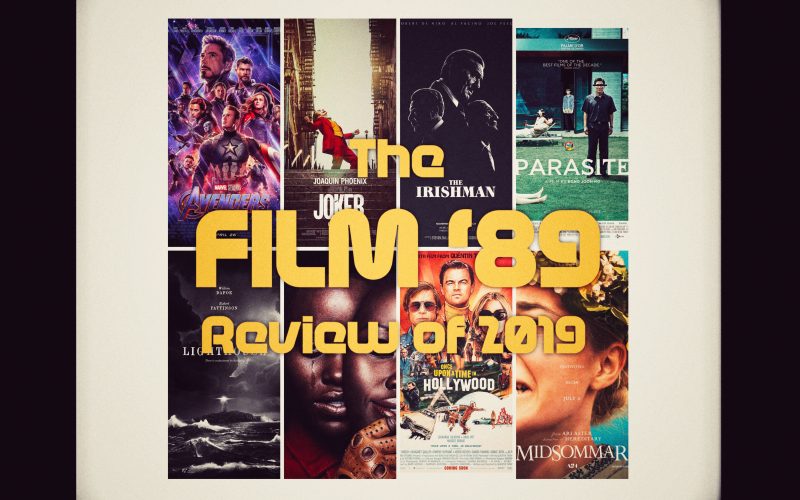The Film ‘89 Year in Review 2019 – Part 6, John Arminio.
2019 was a year of great films and extremely stupid “hot takes.” The latter months of the year were dominated by a conversation about whether or not superhero movies were cinema, which resulted in fans and lovers of art attacking an artist, all the while supporting the corporate behemoth responsible for that superhero content in the first place. We online-raged ourselves into doing Disney’s job for them, and it was not good. Are Marvel movies cinema? Superhero movies in general? I don’t know. What I do know is that few movie moments moved me like Captain America swinging Thor’s hammer Mjölnir in Avengers: Endgame, few films have caused me to think more critically about my own expectations and about the movie-making process in general than Joker, and few films continue to leave an indelible mark on my psyche like 2017’s Logan.
But in 2019, are MOVIES even cinema anymore? Watching The Irishman on Netflix over three or four sittings, knowing you can go back to any moment in the film at any point, stop and discuss it via text with your friend living on the other side of the world at any time, is a fundamentally different experience than seeing Taxi Driver in 1976 in a dark theater for what you might very well think is the only time in your entire life you will be seeing this piece of art. The preciousness of the moment, the mutability of memory, the security of knowing that the art will be there when we need it, all these factors make the art as perceived by the consumer different.
For me, cinema is the art form most perfectly suited to define the 20th Century, so as we move further and further from the era of film’s greatest cultural prominence, we also move further from its traditional means of production, distribution, and consumption. Does that mean the art itself has changed? That is a philosophical question, one maybe better suited to film critics wiser than I (look to Pinnland Empire, The Pink Smoke, Flixwise, Wrong Reel, Pure Cinema, and the other writers at Film ‘89 for such discourse). What I do know is that it’s a question we need to discuss carefully and thoughtfully, wary of how corporate interests are affecting our viewing and spending habits, not with kneejerk reactions to earnest concerns for the future of an art form we all dearly love.
Anyway, the following films are ones that I would not want to declare as “Best,” but ones I continue to think about, to value and treasure as the year progresses. It should also be noted that I didn’t get to see everything I would have liked to, so if something is missing from this list, it may just be that I haven’t had a chance to see it yet. There is television in here as well, but I will try to keep it to stories told in a relatively cinematic way. It’s an arbitrary distinction, I know, but so is all art. So yeah, HUZZAH!
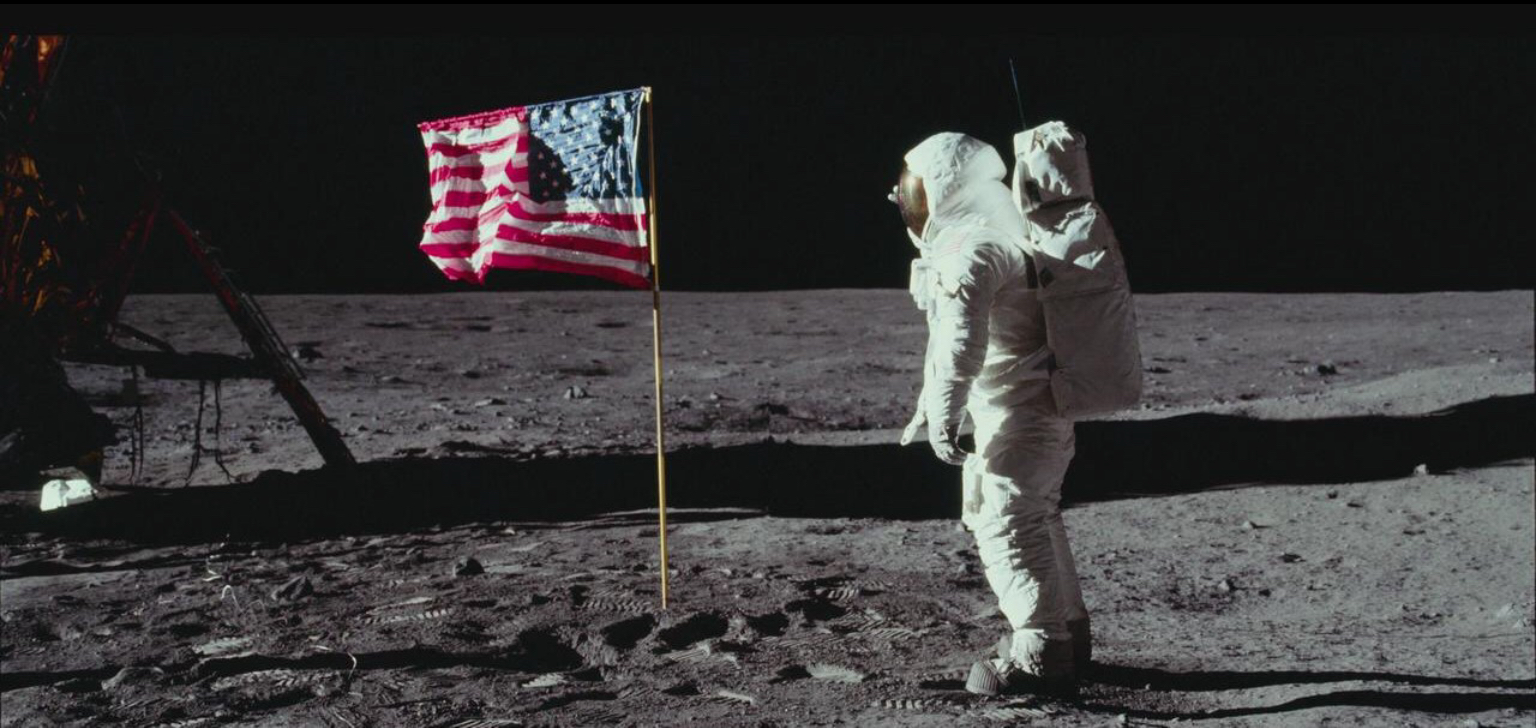
Apollo 11 – Created wholly from original footage and audio, including vintage 70mm film, and restored to gorgeous clarity without any recreation, narration, or interviews, the Todd Douglas Miller-directed Apollo 11 was positively one of the most thrilling theatrical experiences of 2019. And it’s a documentary. There have been few visions of the space program depicted on film as compelling as this one, right up there with adapted true stories such as The Right Stuff and Apollo 13. It’s such a cleanly told, well-executed narrative, and one I am so thankful I got to experience in an actual theater. Perhaps something will be lost if it’s seen at home on a smaller screen, but the genuineness of the people and the majesty of their mission will appeal to the inner 9-year-old in all of us, as well as the dreamer who, hopefully, can still envision a future in which we reach for the stars.
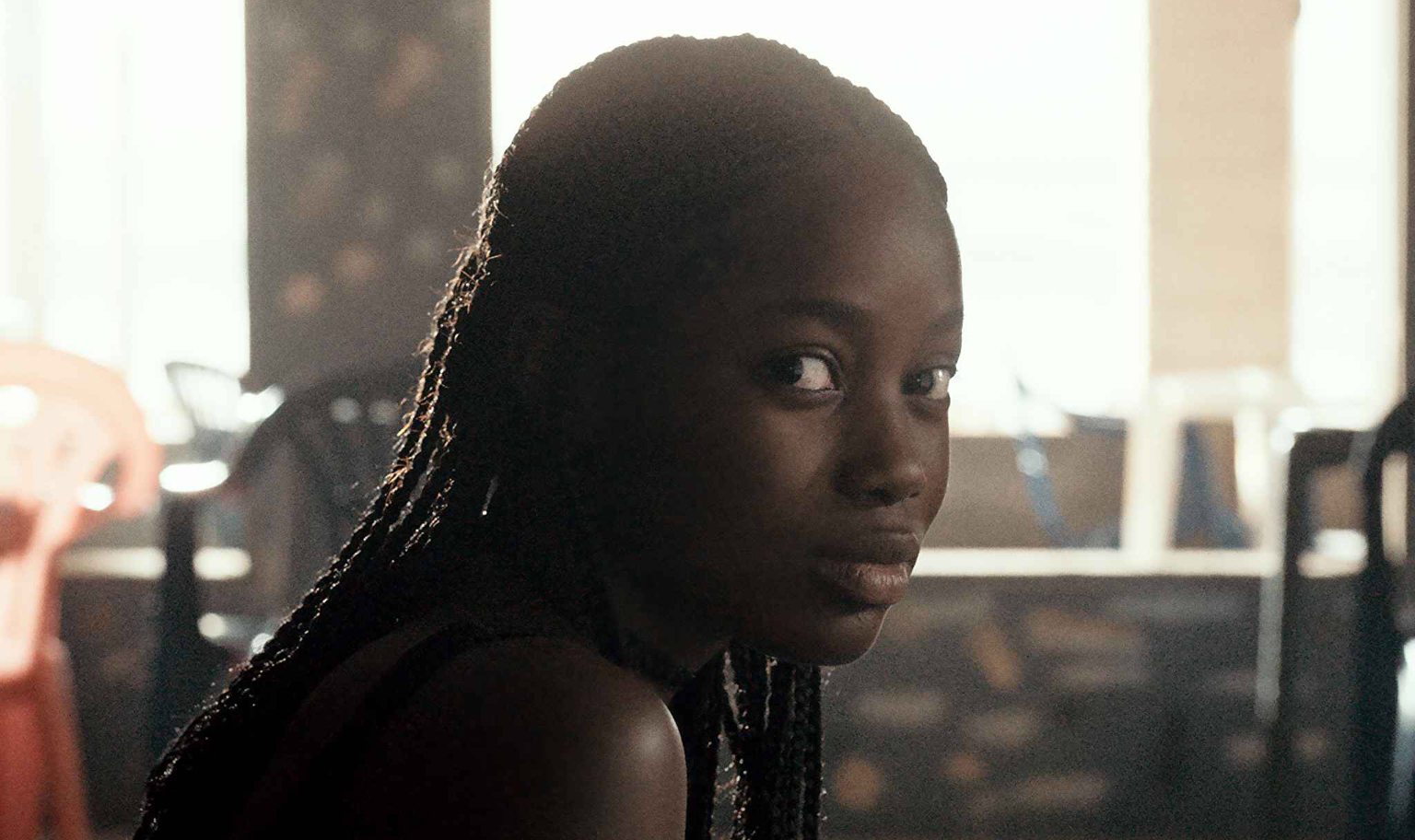
Atlantics – This Senegalese/French/Belgian co-production is a film that I wouldn’t have looked into if it weren’t for the eloquent championing of it by Marcus Pinn of Pinnland Empire, and for that I am extremely grateful. The less I speak about this movie the better, but I encourage you all to see it (it’s on Netflix so you have no excuse). First-time director Mati Diop crafts a strikingly original tale that is at once a modern murder mystery and supernatural fable of modern love in a fast moving society and the weight of immovable traditions. For a director’s feature debut to be this assured, this balanced amid so many influences and potential pitfalls makes Diop a filmmaker to watch.
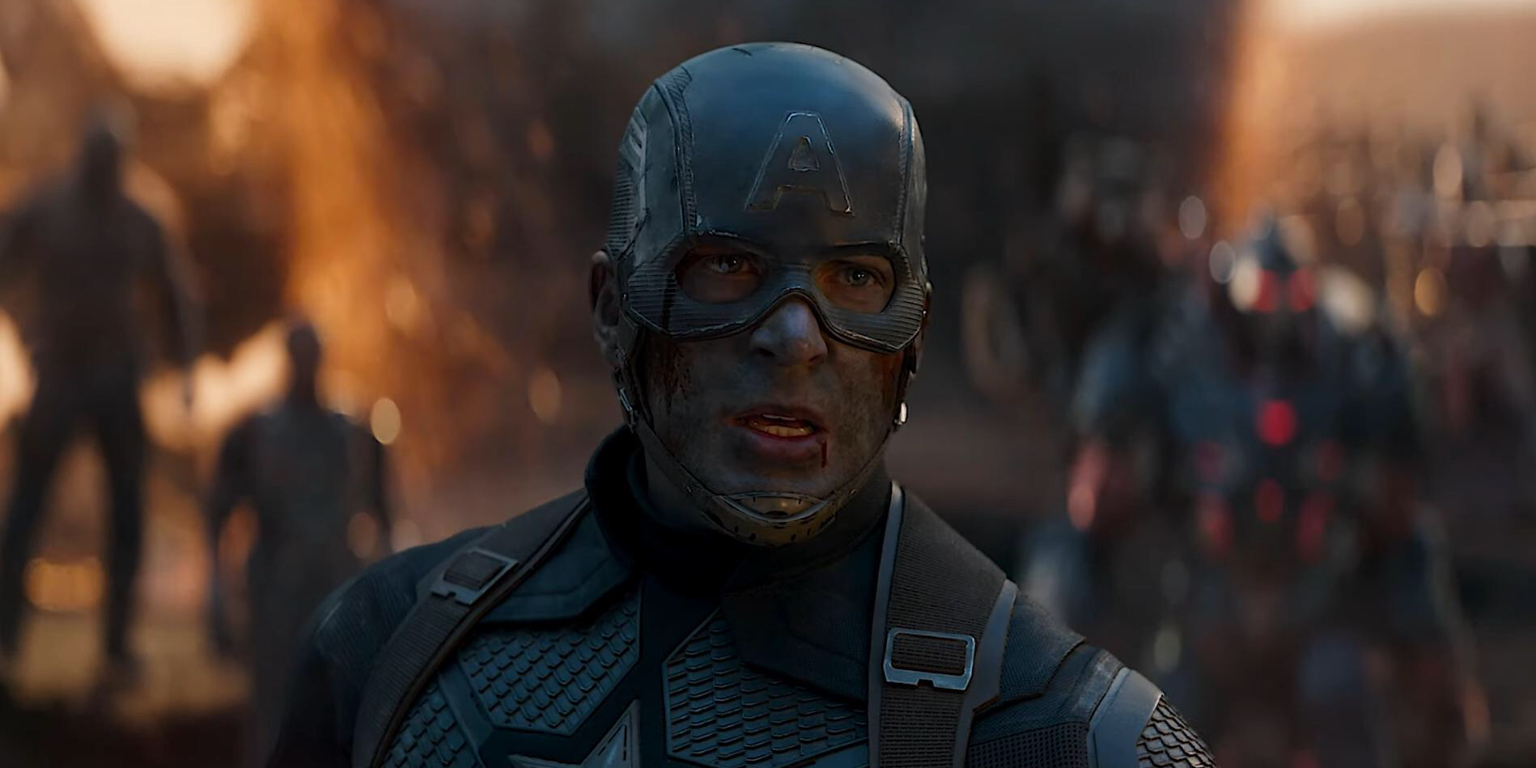
Avengers: Endgame – At this point everyone who has any interest in Endgame has seen Endgame, so it’s not like anyone needs to go over the film again. But really, it’s just great. Even amid the time-travel logic nonsense, the CGI-fest of a climax, and the fact that at least 20% of the film is ads for future Disney+ programming, there was no adventure as downright satisfying as Endgame. Steve Rogers wielding Mjölnir will live in my heart forever.
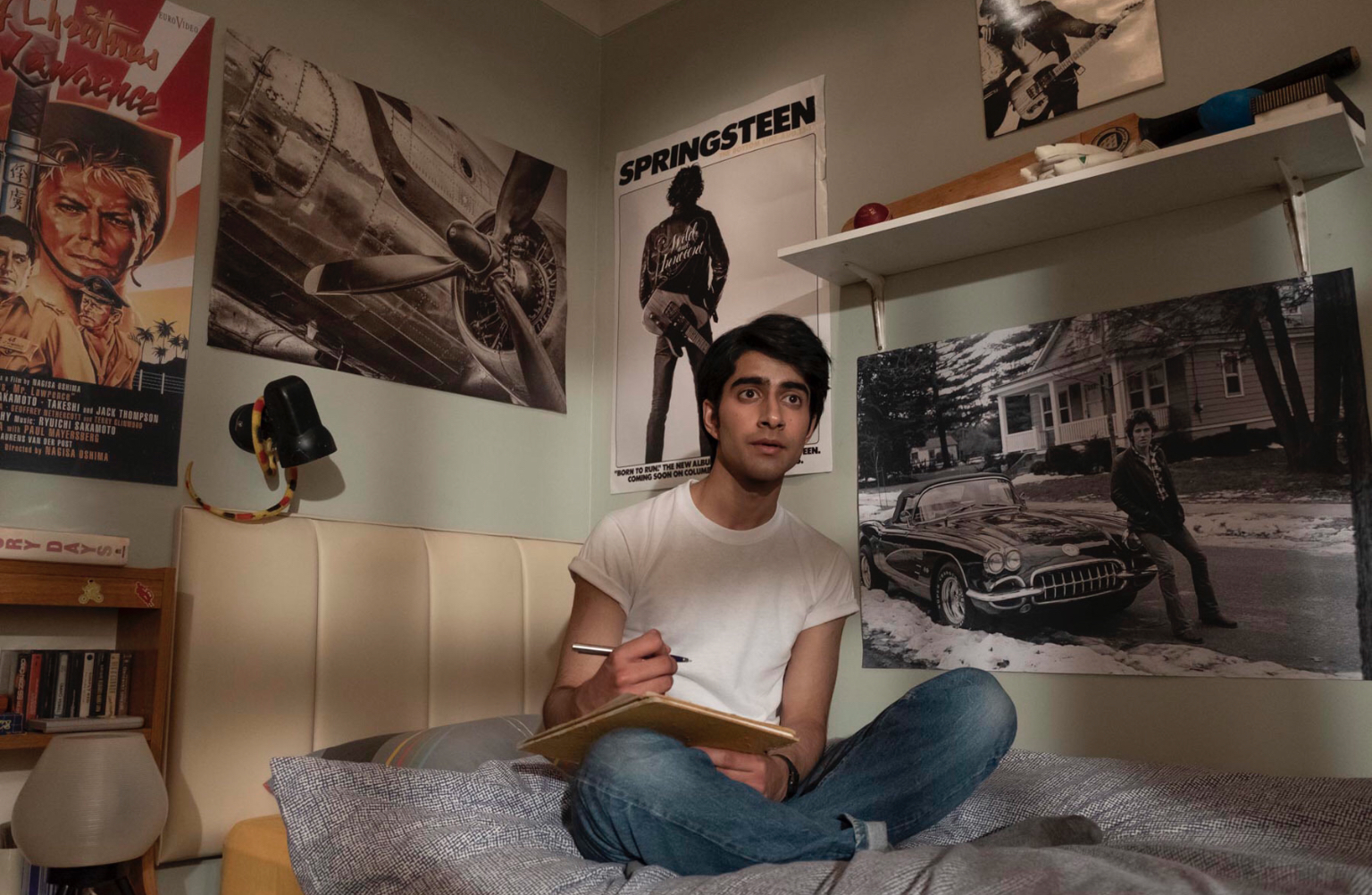
Blinded by the Light – For a full review of this film, check out… my review of this film for Film ‘89. Spoilers: I like it a lot! I am a llifelong Bruce Springsteen fan, so this movie spoke to me on a very core, almost genetic level (I am of Italian descent with a father from New Jersey). The beauty of Blinded by the Light is how it demonstrates the universality of Springsteen’s music, even if (or because of) the stories he’s singing about are so specific to him and his experiences. It’s that specificity that breeds honesty and truth, and that connects with our protagonist Javid who so desperately wants to escape both his small town and the expectations of tradition and family. That need to escape, to be your own person, is at the heart of Springsteen’s music, and it becomes Javid’s champion as he becomes its mouthpiece.
Coming from Bend it Life Beckham director Gurinder Chadha, this adaptation of a true story takes a much more somber, pessimistic look at race relations and class conflict in England than her previous film but it still manages to be uplifting and, at times, joyous. You know, like a great Springsteen album (except Nebraska, which is just soul-crushing sadness from start to finish).
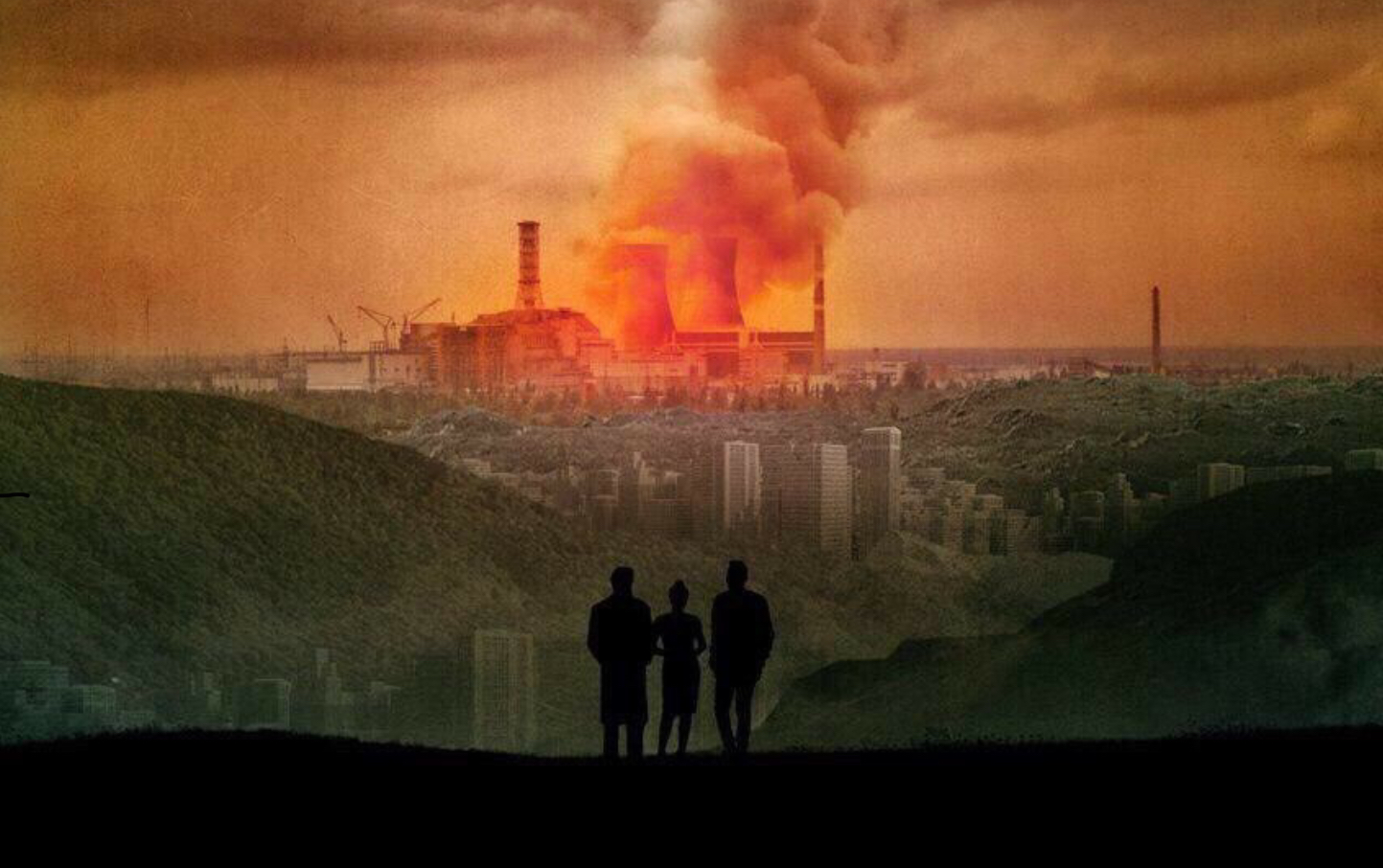
Chernobyl – The most terrifying body horror since the heydey of David Cronenberg came from an HBO series about a real nuclear disaster. The most trenchant social commentary about modern politics came from a TV show set in a province of a dying Soviet Union. One of the most profound testimonies to the power of individual sacrifce came from a show depicting the torment of being crushed by a society that seeks to annihilate the individual.
Creator Craig Mazin’s comphrensive historical drama about the deadliest nuclear disaster in world history is so harrowing, so compelling, that it is able to convey facts about nuclear science alongside its truths about the human capacity for both brutality and endurance. The performances, from mostly British actors (and Stellan Skarsgård) are heartbreaking and believable, even if they’re sometimes playing characters amalgamated from a multitude of real people. I’ve never seen a show like it, and dare say I never will again. A less adept program of this ilk might feel like homework, but Chernobyl makes me want to hug my loved ones and be thankful we are all not melting from radiation poisoning.
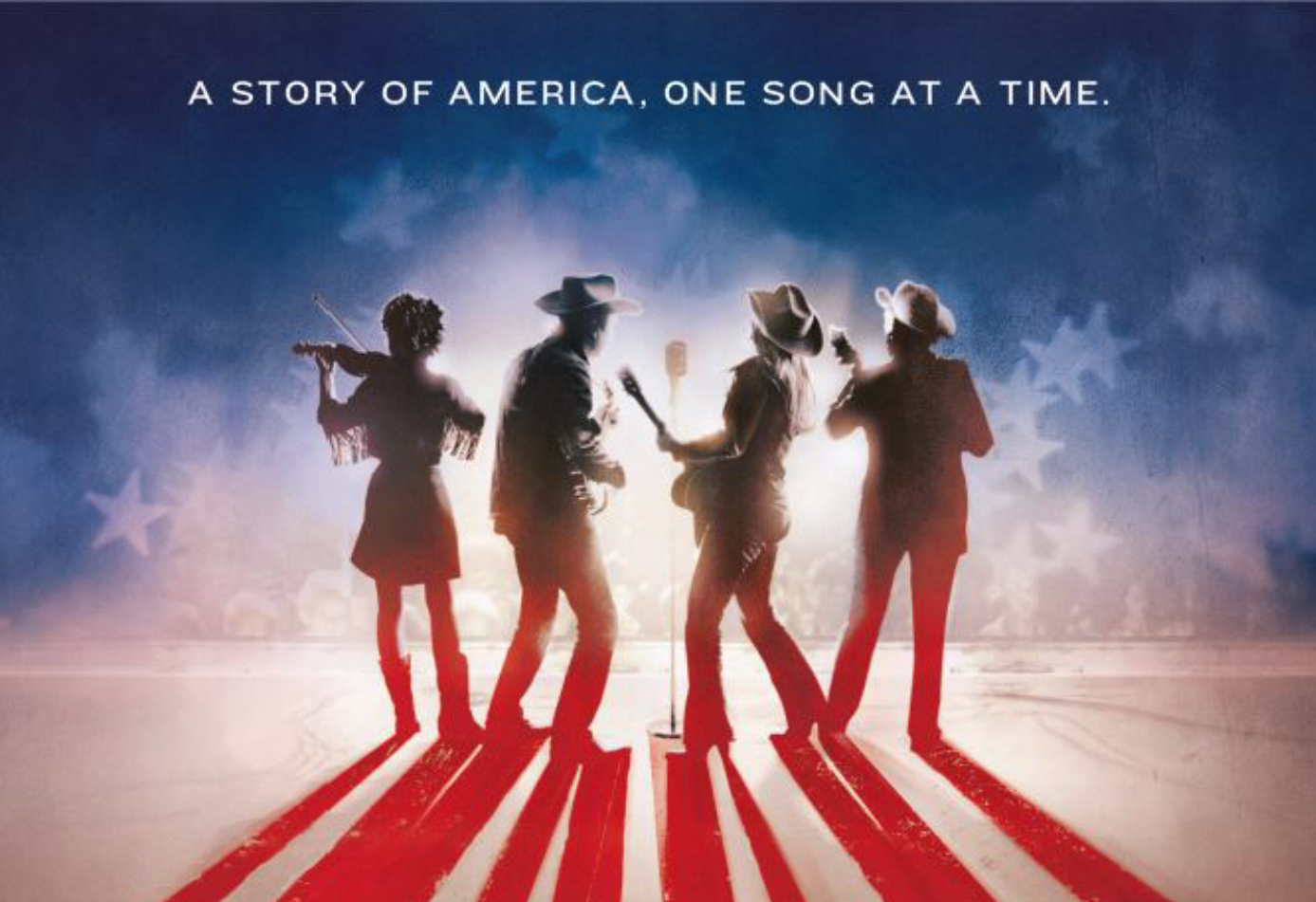
Country Music – I know that loving Ken Burns documentaries is somewhat gauche among cinephiles, but I’m an unabashed fan of his work. From deep explorations of the Civil War to baseball to Vietnam, his deep dives into American history re-frame and crystallize my views on my own country and the cultural forces that shaped it. While I may not be the biggest country music fan, the stories illuminated in this documentary are fascinating, and thus enthralled the music and history lover in me to watch every second.
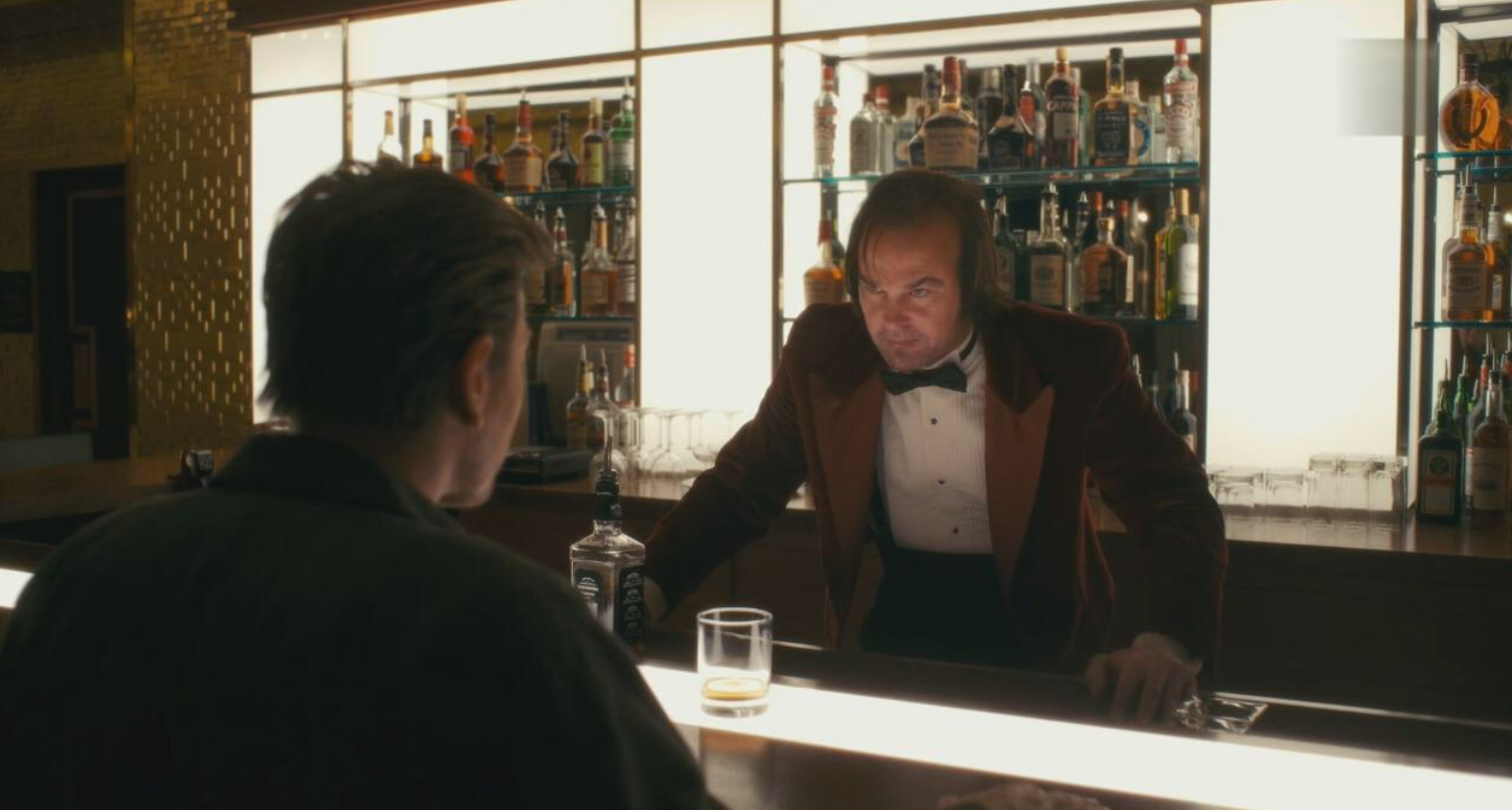
Doctor Sleep – Director Mike Flanagan and Stephen King did something I thought was impossible. They combined the story and aesthetics of Stanley Kubrick’s classic film adaptation of King’s novel The Shining (which King was notoriously displeased with) with the story and aesthetics of King’s own book Doctor Sleep, which is a sequel to the novel The Shining, but decidedly NOT to Kubrick’s film. The result is one of the most human and compassionate horror films in years, while also sporting an absolutely terrifying villain in Rebecca Ferguson’s Rose the Hat. Ewan McGregor is note-perfect as Danny Torrence, balancing the despair and trauma the character has experienced with the wisdom and sensitivity he is gifted with. We see this acting ability most prominently on display towards to end of the film when Danny encounters the specter of his father, chillingly played by Henry Thomas (a wise decision by the filmmakers to not create a CGI Jack Nicholson for this scene). Kyliegh Curran is wise beyond her years as young Abra Stone, and Cliff Curtis as always gives a solid supporting performance. Doctor Sleep is as much an adventure as it is a horror film, despite a few truly disturbing sequences, and its two-and-a-half-hour running time flies by as the viewer is swept up in the momentum of this supernatural tale.
Doctor Sleep‘s financial failure at the box office is as puzzling as it sad, meaning we might get less emotionally daring and deep horror films in the future. Regardless, any fan of Stephen King, Kubrick’s film, or horror in general owes it to themselves to check out Doctor Sleep.
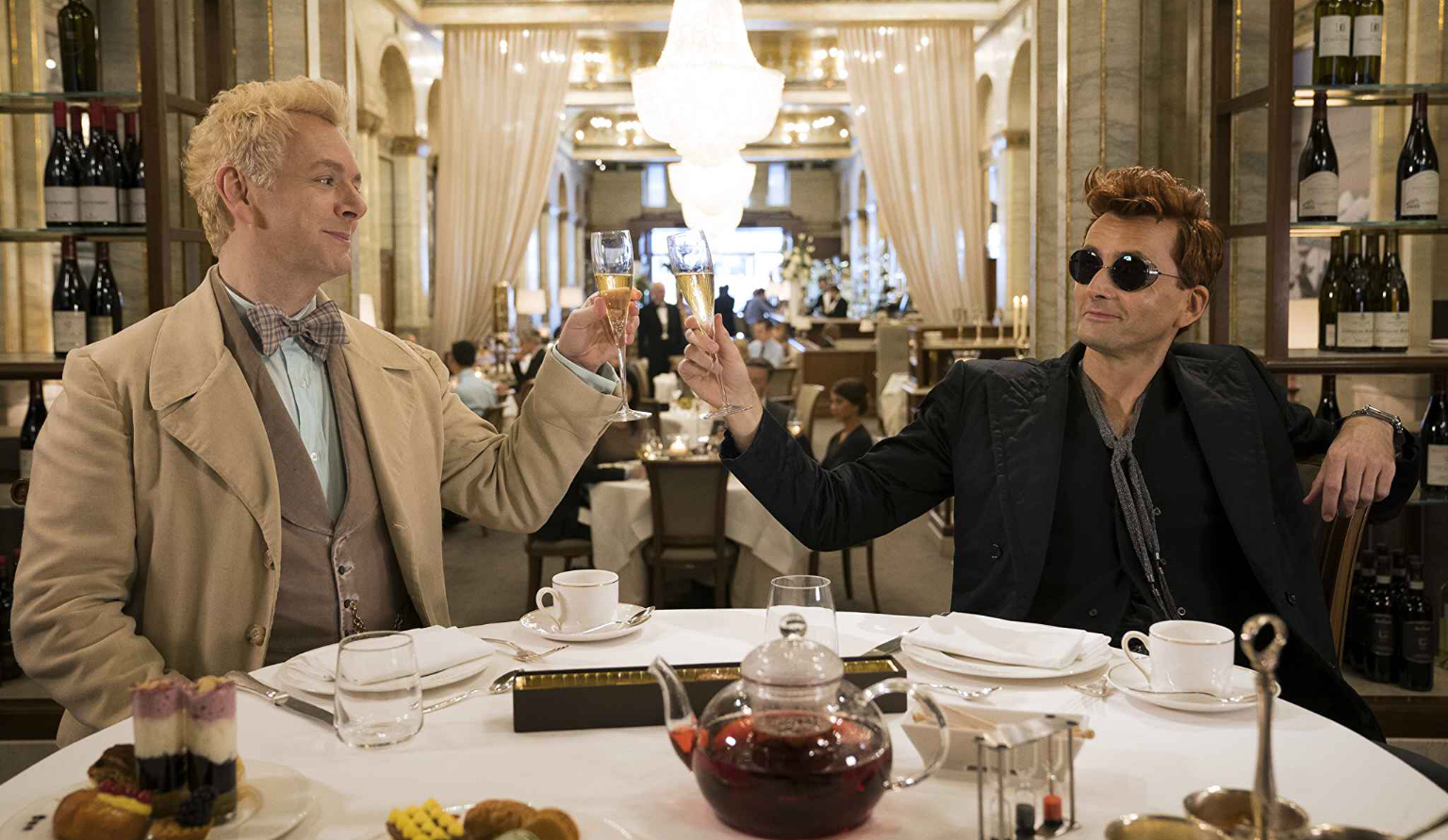
Good Omens – There is perhaps no other artist whose work has affected me and my world view more than Neil Gaiman, so I always approach adaptations of his work with a mixture of anticipation and wariness. Good Omens is adapted from the 1990 novel that Gaiman co-wrote with legendary fantasy writer Terry Pratchett, and I honestly could not ask for a better version. Both David Tennant and Michael Sheen are perfect as Crowley and Aziraphal respectively, (though I wouldn’t mind a world in which their roles were reversed). Comedy from high-concept religious satire and apocalyptic imagery may seem like a tall order, but Gaiman and company pull it off beautifully. It’s fun, it’s hilarious, it’s strange, and at times, excruciatingly English. I love it.
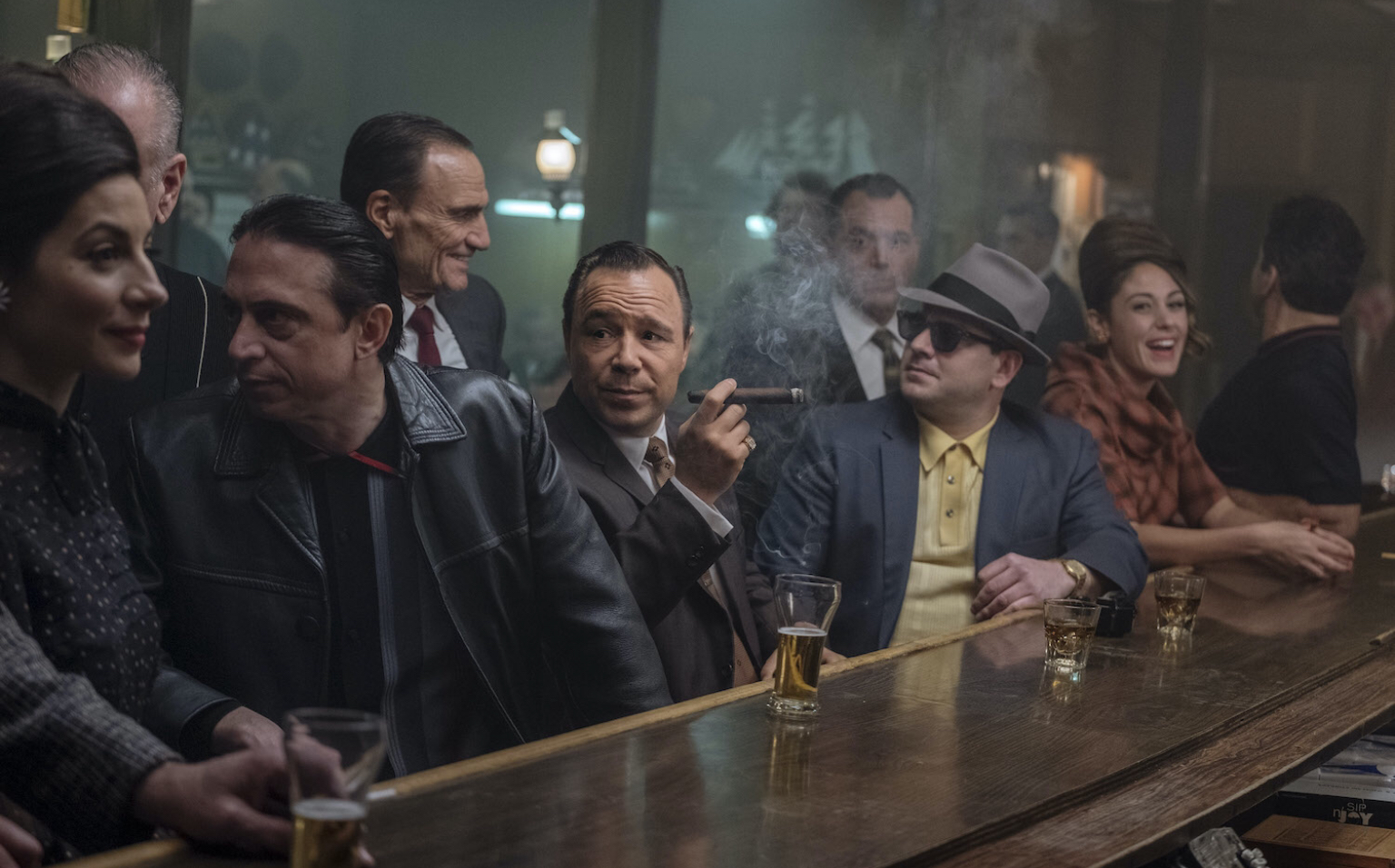
The Irishman – Martin Scorsese’s 209 minute crime epic is less of a gangster picture and more of a meditation on the ways in which we can abandon ourselves to our actions or to a so-called code, only to lose ourselves entirely. In that sense, it has as much to do with Scorsese’s brilliant 2016 film Silence as it does with Goodfellas, even if the actors and settings seem more familiar to fans of Scorsese’s most popular films. It’s not exactly a joy to see Robert De Niro, Joe Pesci, Harvey Keitel, and Al Pacino (nothing is joyful in The Irishman), but it’s still immensely satisfying. The tale of De Niro’s Frank Sheeran, of how he was perhaps the most prolific and important mob hitman in the post-war period, is a fascinating and tragic one, but also one that might be entirely fictional. The film utilizes the idea of the unreliable narrator, of an old man desperate to feel important now that all the people he thought he cared about are dead or have abandoned him. We, as viewers, are asked to question everything, especially our own reactions, what we take at face value and why.
Pacino uses his persona to embody the persona of Jimmy Hoffa, the brash, egotistical showman who was his own worst enemy, catapulting his careless bravado at anyone around him, especially when dealing with the mob. Joe Pesci on the other hand plays against type and remains a quiet mountain of considered contemplation and still observation. He’s like a serpent or a panther, waiting for an opportunity to gobble up an unsuspecting rival. It’s a movie replete with brilliant performances from the leads and supporting cast, who carry the film throughout its three-and-a-half hour running time.
The Irishman is however never bloated or excessive. Sure, it might be a slog to get through in one sitting, but no scene seems wasted, no character arc unnecessary. It’s a profound, intimate epic that I can’t wait to revisit.
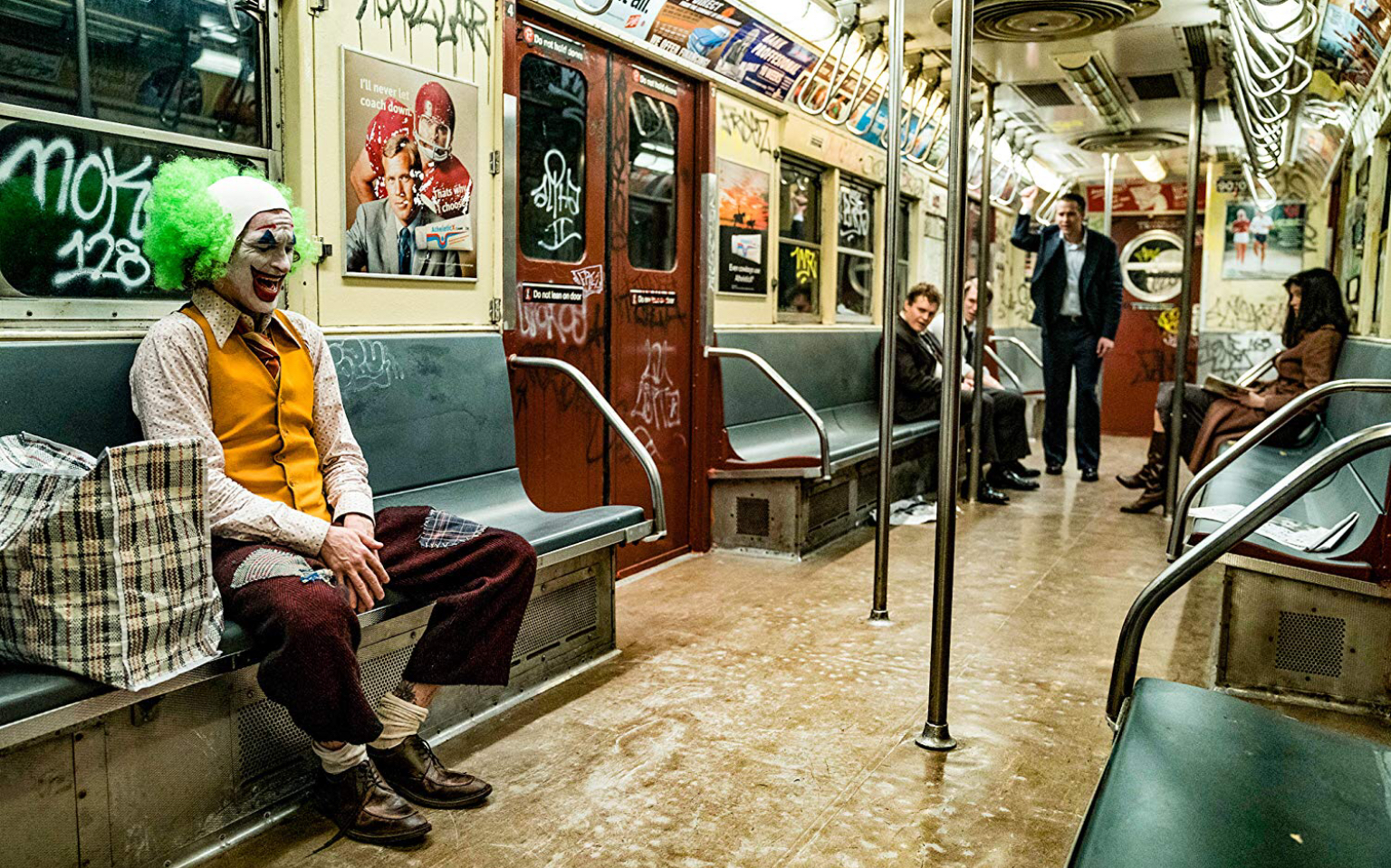
Joker – I went into this movie with my eyes rolled HARD. I was against it. The Joker shouldn’t have a backstory, let alone a standalone movie. He doesn’t deserve one. He murders for laughs. More metaphor than man, he is evil incarnate; the psychopathic joy the truly wicked can glean from the trauma of others. Plus, it doesn’t make sense timeline-wise when taking into account the other DC films. This is set in the era of New York City around the time of Taxi Driver and The King of Comedy, Martin Scorsese’s New York, so how is this Joker related to the Batman we know? Are they related at all? If not… why? And speaking of Scorsese, the multitude of references and influences from the previously mentioned films were obvious even from the trailers. Homages are one thing, but this movie seemed to be cribbing the themes and imagery from Scorsese whole cloth. WHAT IS THIS THING?
Boy was I wrong. The out-of-this-solar-system performance of Joaquin Phoenix, filled with equal measures of sadness and empathy, anger and menace, has been lauded ad nauseam, and deservedly so. Joker would not work without such a lead. But it is also a testament to Todd Phillips as a filmmaker that Joker synthesizes all of its influences, and even potential pitfalls, into one coherent narrative. All the filth and garbage (both literal and figurative) of Gotham are funneled into Phoenix’s Arthur Fleck. He becomes a repository of all the anger and hate that the city produces, pouring it back out with his own poison. He becomes the metaphor that the Joker has always represented; not the hope of a city, but its doom.
The film looks and sounds gorgeous, with cinematographer Lawrence Sher capturing the beautiful ugliness of a city in decline, and composer/musician Hildur Guðnadóttir creating soundscapes that wring preternatural tension from the bloody streets. I didn’t know what to expect, but I am so glad to have been proven so wrong.
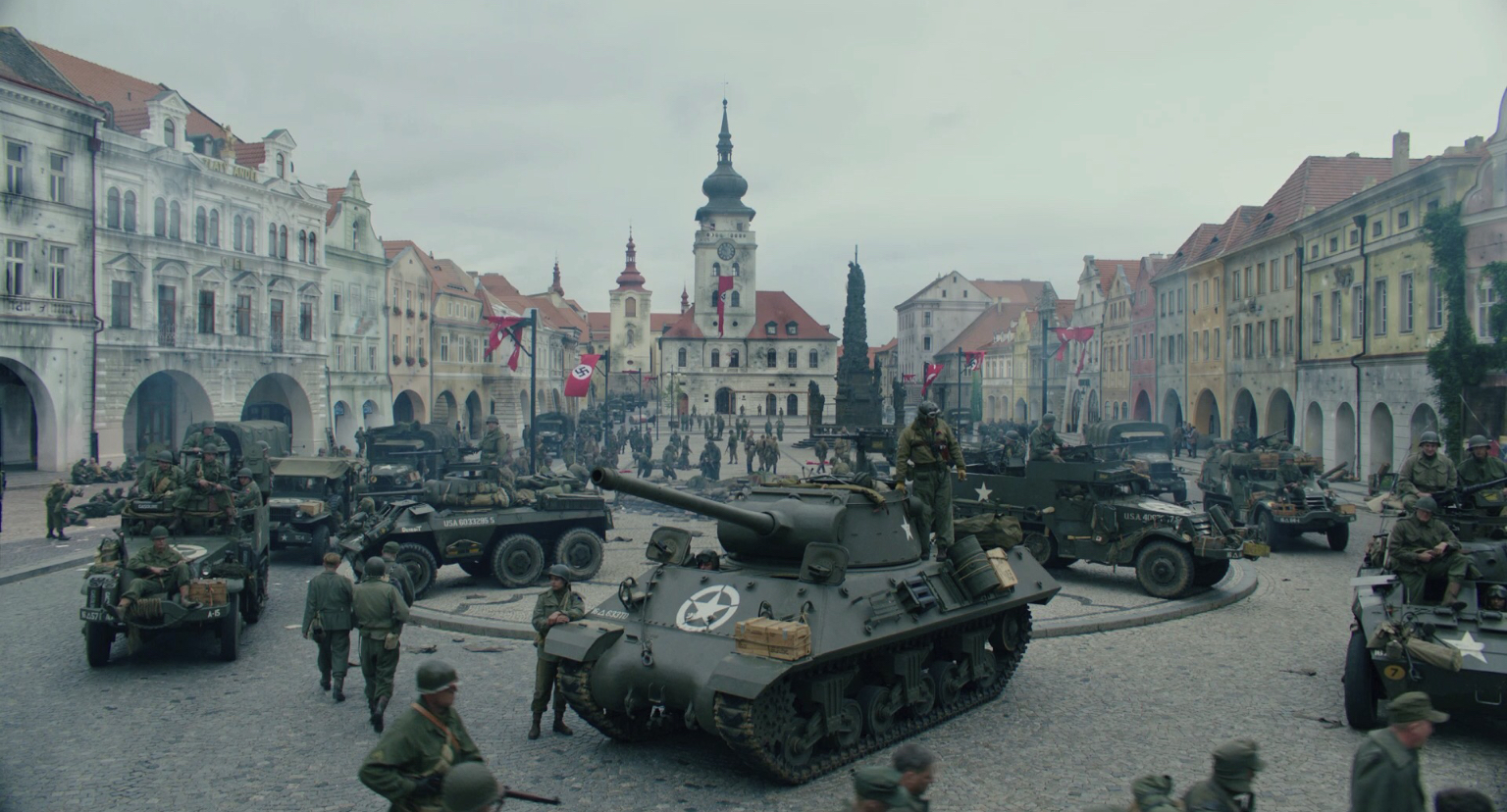
JoJo Rabbit – Creating laughs out of World War II and the Holocaust is a difficult and dicey proposition, but it has also been a part of mainstream comedy since Mel Brooks’ The Producers and the musical-within-the-movie, ‘Springtime for Hitler’. Even before that, before the scope of the war and the Holocaust could truly be reckoned with (and in a more earnest and directly political way), Charlie Chaplin took aim at Hitler and the Nazis in The Great Dictator. What director (and the man playing the Imaginary Friend Hitler character) Taika Waititi has done in Jojo Rabbit is a breathtaking balancing act of absurdity and sincerity, to say nothing of its balance of comedy and tragedy. Although there is a strange, real-world trend of Sam Rockwell playing white male characters who are redeemed by the benevolence of adjacent women he burdens with his own sins and insecurities (see also Three Billboards Outside Ebbing, Missouri and The Best of Enemies), the film itself is full of wonderful performances, Rockwell included. The real stars though are the titular Jojo (Roman Griffin Davis) and Elsa (Thomasin McKenzie), who imbue their characters with a dignity and heart that gives hope to the tragedy and horror that surrounds them. It’s upon these children’s shoulders that the future of Germany, and humanity as a whole, rests. Jojo Rabbit is a film about how we can move forward from the horror and absurdity of evils like Nazism, but first we must acknowledge and confront it, much like Jojo, his mother and Elsa.
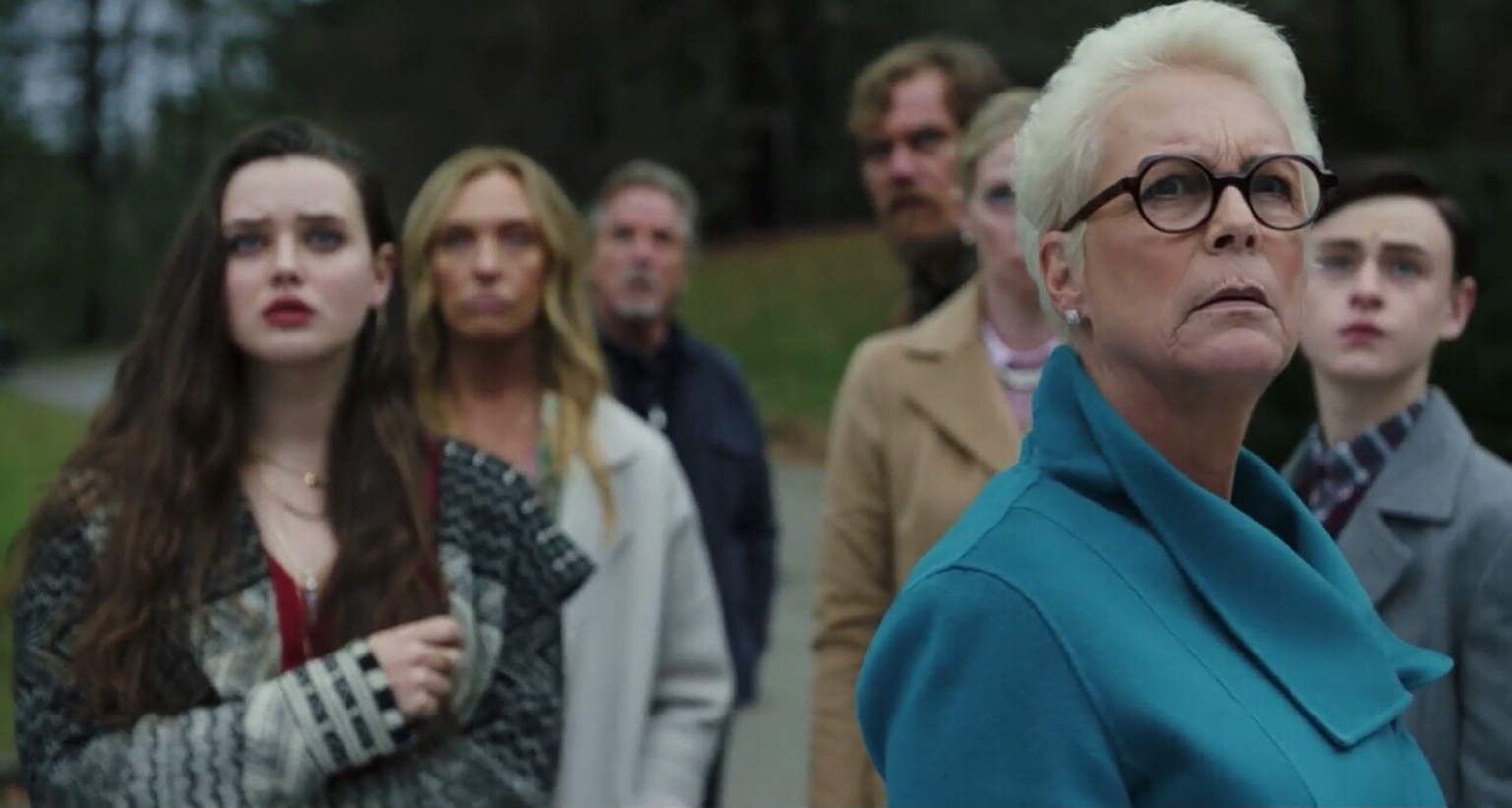
Knives Out – RianJohnson’s return to not only mysteries, but worlds of his own creation (wonderfully original spins on familiar genres) is a welcome one, especially with a film as energetic and entertaining as Knives Out. The film is a remarkable balancing act between whodunit and Hitchcock thriller, all the more impressive considering Hitchcock was notorious for hating whodunits as they were the antithesis of his philosophy on suspense, which is predicated on the audience having more information than the characters on screen, not less. The end result of how the crime at the center of Knives Out might be obvious, the method of its execution telegraphed from the first act, but how we get to the destination, the winding road of who knows “whodunit,” is where the suspense (and outright fun) is found. The cast is a star-studded feast, the sets are a wonder to behold, and the social commentary on class is enveloped in a story structure uniquely suited for such observations without interfering with the thrill of the narrative. And Daniel Craig with a Southern accent? Give me more Benoit Blanc mysteries Mr. Johnson!
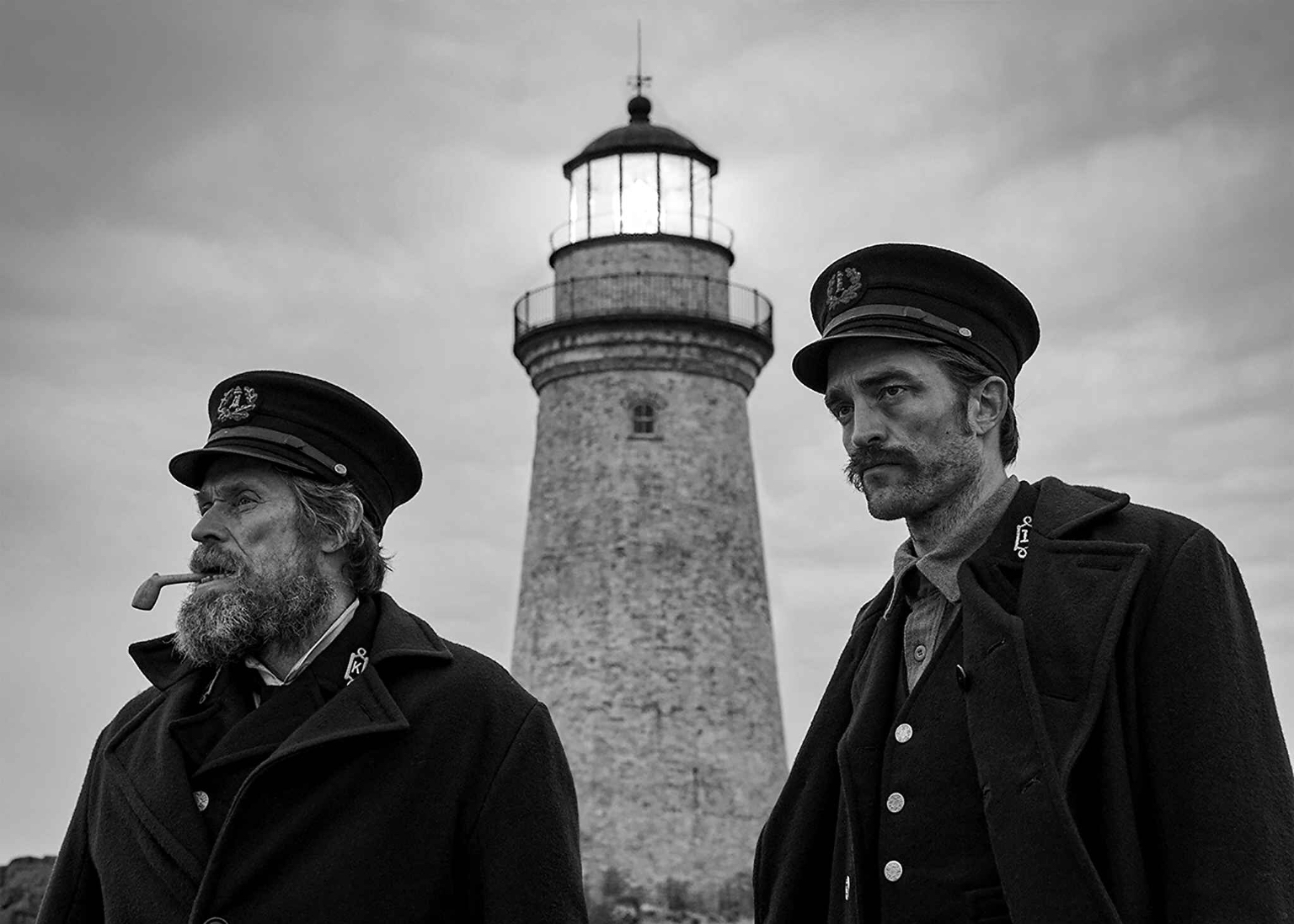
The Lighthouse – This is a lean, mean cinematic nightmare, one that has to be seen to be believed. Dominated by the unhinged performances of its leads Willem Dafoe and Robert Pattinson, director and co-writer Robert Eggers’ follow-up to the brilliant The Witch is like the darkest sea shanty turned from aural to visual metaphor and put on screen. It’s two men facing off against each other as the material world crumbles around them, surrounded by cold, storms, piss, alcohol, hallucinations and loneliness, all combining into a sort of Hell-manifesting wicked magic. Perhaps the film doesn’t depict anything supernatural, but it surely created an otherworldly feeling in me.
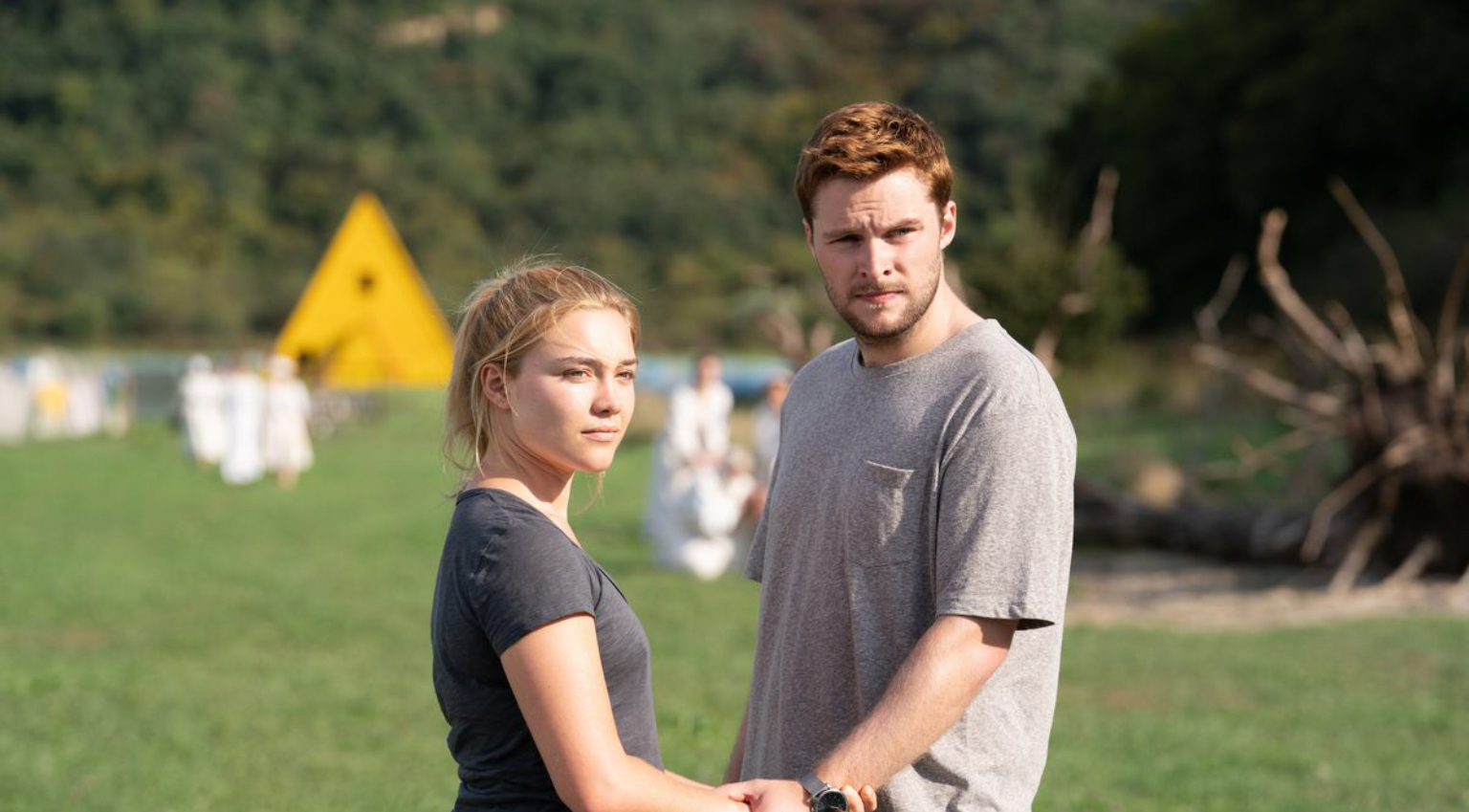
Midsommar – Ari Aster’s masterful follow up to 2018’s Hereditary is a sunlit, gorgeous trip through madness and grief, wherein bad relationships are exorcised with the fierceness and voracity of hell-spawned demons. Florence Pugh is so watchable, so believable in the lead, we feel for her from the first moment we see her on screen, through her trek into sacrificial folk tradition, and up until the fiery final frames. It’s a performance that will live on for generations, at the very least among horror fans, if not film-goers as a whole.
Aster’s imagery combines the most bucolic of settings and friendliest of hosts with the bloodiest of ceremonies and most primitive traditions. Midsommar is a film that explores the darkest parts of ourselves by pulling them into the light, forcing the base elements of our personality to shine in full witness of a community intent on rooting out that infection. The results are truly insane, but also thrilling and entertaining. Aster escalates his narrative again and again to the point of absurdity, but the imagery is so breathtaking, the performances so human, that it never strains credulity. Although it certainly has its antecedents (The Wicker Man is the most obvious comparison), there really is no film quite like Midsommar.
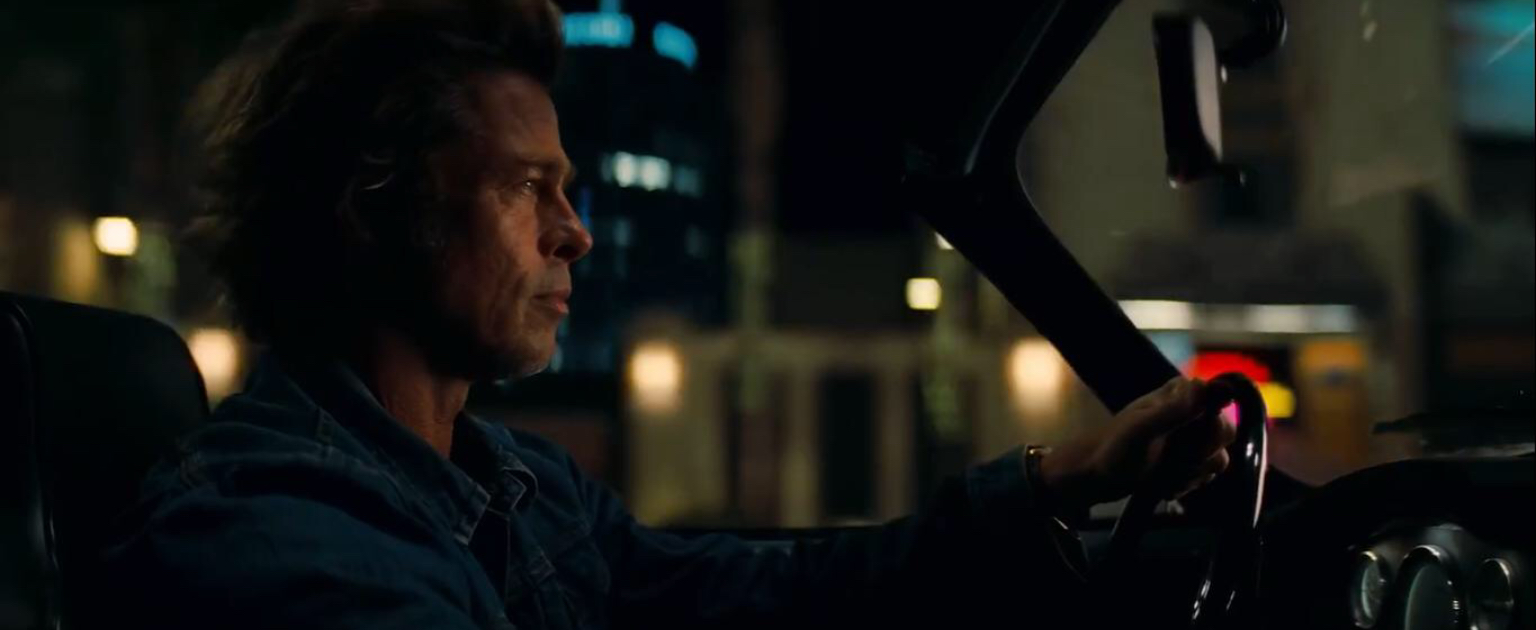
Once Upon a Time… in Hollywood – Even though I rarely pick an out-and-out favorite film of the year, Once Upon a Time… in Hollywood might just be that for me in 2019. It’s the kind of film I‘ve been waiting for Quentin Tarantino to make since 1997’s Jackie Brown (one of the best films of that decade, and for me, previous to Once Upon a Time…, Tarantino’s best). This is, as many have already described, a hang-out movie. There is little plot to speak of except Rick Dalton’s (Leonardo DiCaprio) quest to get better acting roles and Brad Pitt’s Cliff Booth driving around LA, only to stop and humiliate/beat up some Manson family punks. The characters however are so much fun to be around, so enjoyable to watch that it doesn’t matter. All the tiresome excesses of, say The Hateful Eight, are turned into strengths, as I could sit in Cliff Booth’s car or be on set with Rick Dalton for hours, just watching these stars work their magic.
This is a film that gets better upon re-watch, as the music choices become even more perfect (always a Tarantino strength) and the performances become all the more profound and empathetic. Upon first viewing, Once Upon a Time… is simply so much fun to watch, Brad Pitt’s shimmering movie-star visage, so bright that we might be blinded to the other strengths of the film. When I take a second look, I see the nuances of DiCaprio’s performance, the way his character is clearly masking mental illness with self-medicating and alcoholism, and how crippling his insecurity might be in the future. Rick and Cliff are lucky to have each other, and it’s a magnificent depiction of male friendship. Once Upon a Time… in Hollywood made me want a “happily ever after” for the two of them, whatever that might mean. Even if every frame of this picture screams Tarantino, that warmth and sentiment is quite a change of pace for the director, and I welcome it.
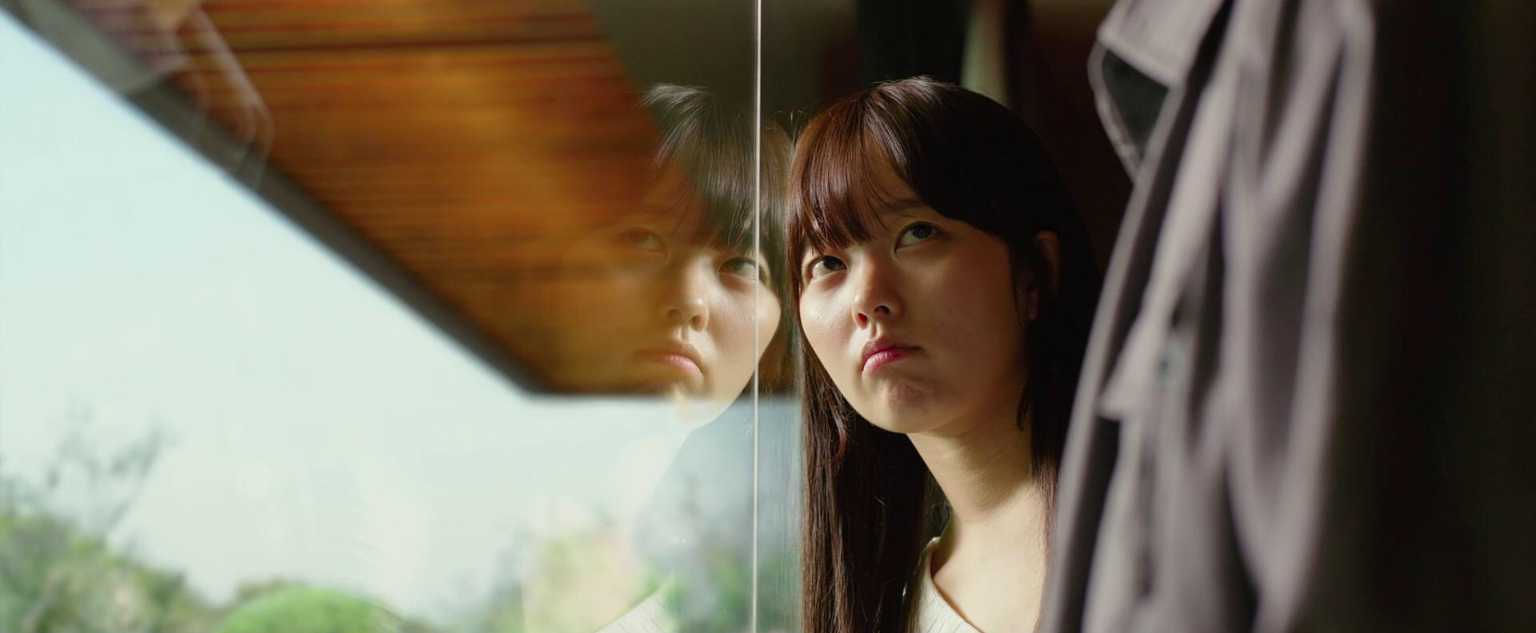
Parasite – Director Bong Joon-ho has made a career out of merging social satire, horror, thriller and domestic drama. While Parasite has less obvious genre trappings than previous films like The Host or Snowpiercer, it is no less thrilling and entertaining. The less said about this movie the better, but trust me, you will laugh, you’ll learn about Korean class dynamics, you’ll cry, you’ll get uncomfortable. Just see it.
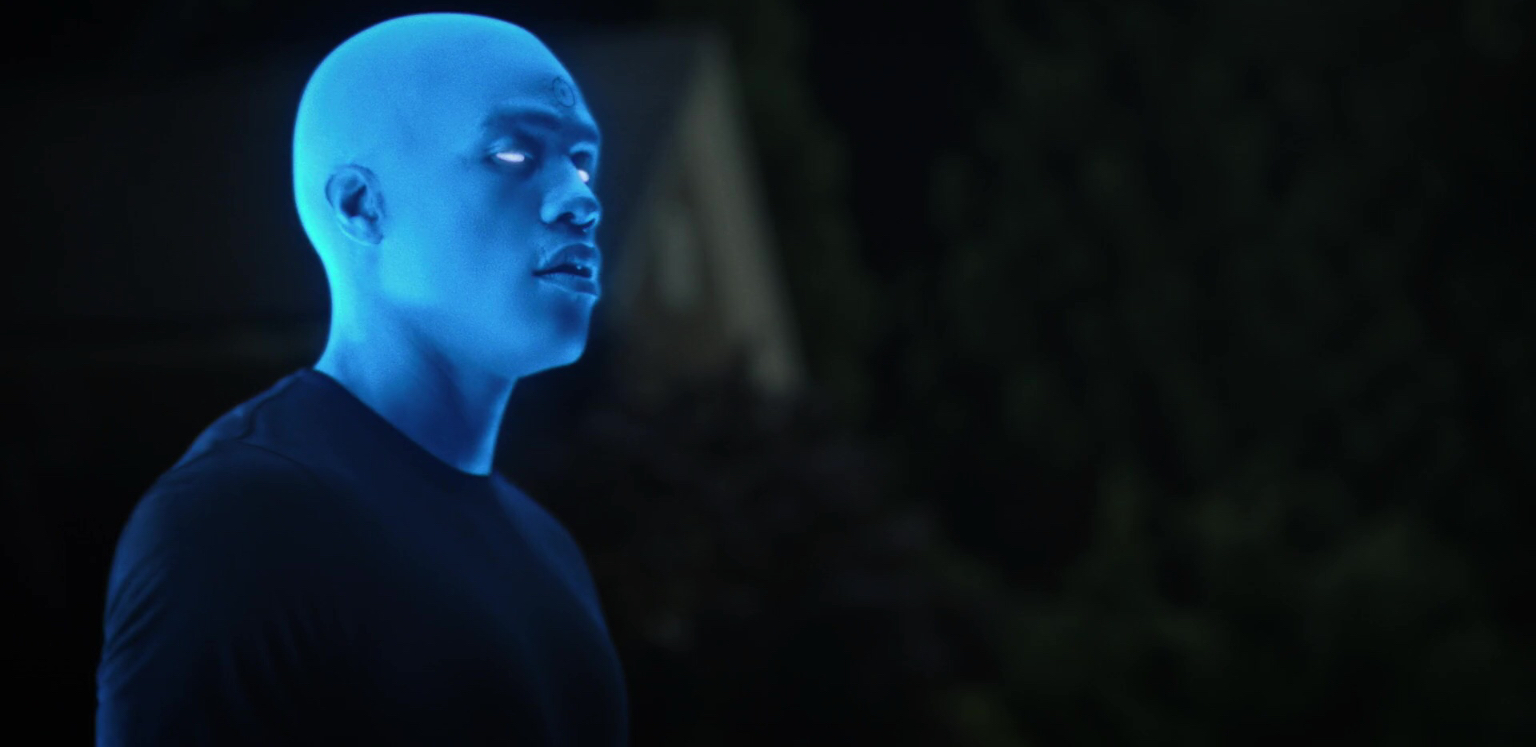
Watchmen – Both as much an unwanted adaptation as Joker and as unnecessary a sequel as Doctor Sleep, but with the strengths of both, my biggest surprise for this year might very well be HBO’s continuation of Alan Moore and Dave Gibbons’ legendary 1986 comic book Watchmen. I hold Watchmen in an almost stratospheric regard, in the same category as Citizen Kane or The Godfather; yes, it really is as good as everyone says it is. So… adding to it? From Damon Lindelof, the guy who wrote Tomorrowland and Star Trek: Into Darkness? But it’s brilliant. The cast is absolutely spot-on with Regina King being an unstoppable powerhouse of a lead. The series explores the uncomfortable legacy of the paranoia and reactionary politics of Rorschach, just as it recons with the racist atrocities of America’s past. Like Moore and Gibbons’ creation, the series is as much about American society as it is about superheroes, comics and storytelling. By exploring the backstory of the characters, Watchmen illuminates the history of the United States, and when the show explores the history of the country, it illuminates the characters. Sometimes the show is messy, sometimes the social commentary is a madly swinging sledgehammer (while the original comic was frighteningly exact in its execution and message), the courage of Watchmen to merely attempt such a profound, socially aware message is astonishing. It’s just as political as it was in 1986, but it is also just as concerned with, and as successful at, telling a thrilling story.
There you have it. My “not as comprehensive as I would like, but still blathering” list of the Best of 2019. If you made it this far, thank you. If you didn’t, then I hope you left to watch some great movies.

